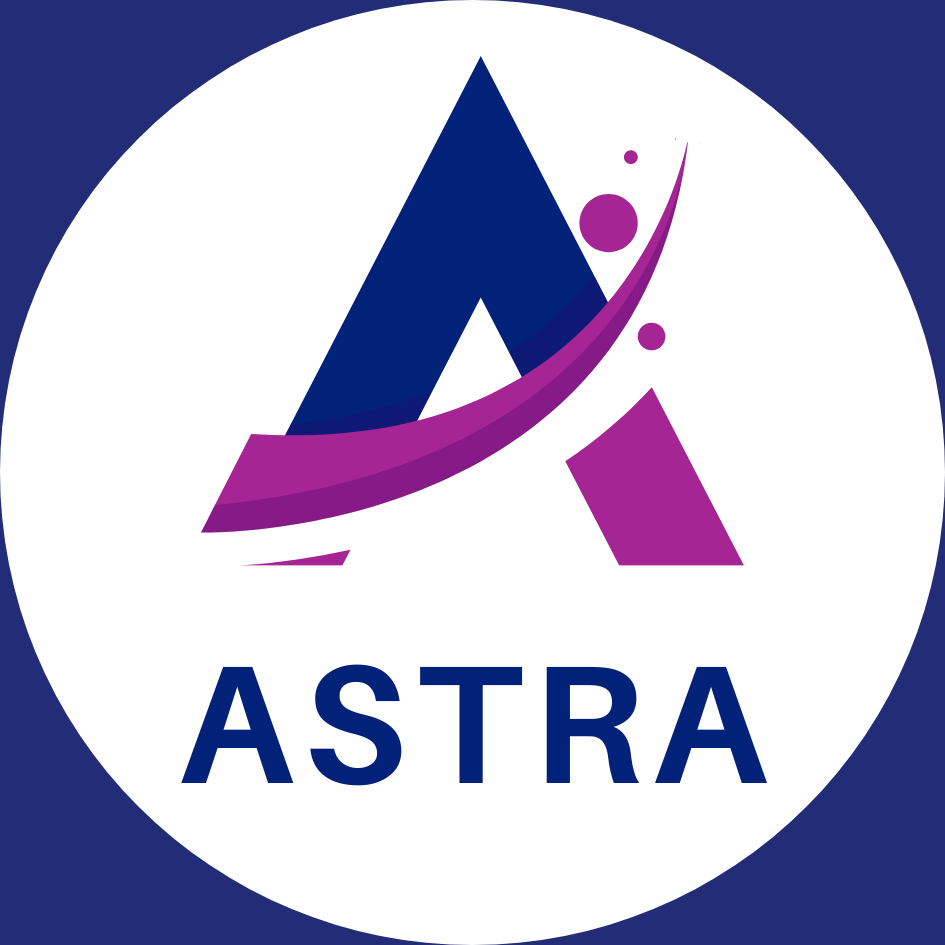In this article, we’ll explore paid traffic for lawyers: a digital marketing strategy that can be extremely effective if done correctly.
As competition in the legal industry intensifies, it becomes increasingly important for lawyers to stand out online.
Paid traffic can be an effective way to do this, allowing you to target specific ads to a relevant audience. However, as lawyers, there are ethical and legal considerations that must be taken into account when using paid traffic.
This article will discuss the importance of paid traffic for lawyers, how to ensure ethical and legal compliance in your campaigns, the challenges you may face, and how to overcome them.
Additionally, we will provide a step-by-step guide on how to do paid traffic for lawyers effectively. So, if you are a lawyer looking to increase your online visibility and attract more clients, read on.
How important is paid traffic for lawyers?
Paid traffic for lawyers has become an increasingly relevant strategy in the digital world.
It allows legal professionals to reach a specific target audience efficiently and quickly. Furthermore, paid traffic presents measurable results, allowing for constant adjustments and campaign improvements.
This means that, with the appropriate use of tools such as Google Ads for lawyers, it is possible to increase online visibility, attract more clients, and increase revenue.
However, it is important to highlight that to be successful with this strategy. It is necessary to know and respect the ethical and legal rules related to advertising in the legal area.
How to ensure ethical and legal compliance in paid traffic campaigns?
Ensuring ethical and legal compliance in paid traffic campaigns is essential for lawyers using this resource.
To fulfill these obligations, it is important to understand the rules and regulations related to legal advertising. After all, ethical conduct not only protects the professional’s image but also guarantees the trust and credibility of the target audience.
Furthermore, respecting advertising laws helps avoid legal penalties that could harm the reputation and operation of the business.
What are the paid traffic challenges for lawyers?
Paid traffic challenges for lawyers can be complex and varied. Dealing with ethical and legal restrictions in legal advertising can be an obstacle, as can fierce competition and high cost per click.
Furthermore, building trust and reputation online is crucial to attracting and retaining customers.
Below, we will detail these challenges and offer solutions to overcome them, focusing on efficient Google Ads strategies for lawyers.
1. Ethical and legal restrictions on legal advertising
Legal advertising has specific restrictions that need to be respected, both from an ethical and legal point of view.
It is essential that lawyers, when using paid traffic, pay attention to these limitations. For example, promising results or using sensationalist language in advertisements is prohibited.
Furthermore, it is important to remember that the information disclosed must be true and clear, avoiding the creation of unrealistic expectations.
Complying with these restrictions is essential to avoid legal problems and maintain the professional’s reputation.
2. Competition and high cost per click
Fierce competition in the legal sector is directly reflected in traffic costs paid to lawyers.
The most relevant and sought-after keywords often have a high cost per click (CPC), which can lead to significant investment in marketing campaigns for lawyers.
Lawyers and law firms must be prepared for this scenario and seek efficient cost optimization strategies, such as precise target audience segmentation and the intelligent choice of long-tail keywords, which, although they have a lower search volume, tend to have a lower CPC and higher conversion.
Therefore, it is essential to have a well-defined strategy to balance the relationship between cost and benefit in paid traffic campaigns.
3. Building trust and online reputation
Building trust and reputation online is one of the biggest challenges in paid traffic for lawyers.
Invest in quality content that showcases your knowledge and expertise in the legal field.
Share success stories, customer testimonials, and relevant information about your field of activity.
Remember, trust is a fundamental element when choosing a lawyer, and your online reputation can be decisive in winning new clients.
Keep your website and social networks updated, and invest in paid traffic strategies that reinforce your authority in the market.
How to generate traffic for lawyers?
Entering the world of paid traffic can be a challenge for lawyers, but with the right strategy, it is possible to achieve excellent results.
In this segment, we will explore essential steps to building a successful campaign, from defining clear and measurable objectives to the importance of efficient geographic targeting.
We’ll also learn how to choose relevant and legal keywords and how to tailor your ads for ethical compliance.
Get ready to discover the secrets of Google Ads for lawyers and how to use social media strategically to expand your firm’s reach.
1. Set clear and measurable objectives
Setting clear and measurable objectives is the first step to any paid traffic campaign for lawyers. This includes determining what you want to achieve with your campaign.
Are you looking to raise awareness about your legal services? Attract new customers? Or you want to boost customer engagement.
Your goal must be specific, measurable, achievable, relevant, and timely (SMART).
This helps keep your campaign on track and allows you to measure its success effectively.
Remember, well-defined goals are the foundation for a successful paid traffic campaign.
2. Choose relevant and legal keywords
Choosing relevant and legal keywords is a crucial step toward the effectiveness of paid traffic for lawyers.
These keywords will attract the right target audience to your website or ad.
A good practice is to choose terms specific to the legal field, such as “divorce lawyer” or “real estate lawyer.” Additionally, it is important to consider user intent.
For example, someone searching for “how to get a divorce” might be early in the process and looking for information, while someone searching for a “divorce lawyer” might be ready to hire a professional.
Therefore, optimizing your campaigns for keywords that match user intent at different stages of the sales funnel is important.
3. Adapt ads for ethical compliance
Tailoring ads for ethical compliance is crucial in paid traffic for lawyers.
After all, the legal sector has specific restrictions when it comes to advertising, and any violation can lead to serious consequences.
Therefore, ensuring that all advertisements fully comply with ethical principles and legal rules is essential.
This includes avoiding promises of results, not making false or misleading statements, and ensuring that all information presented is accurate and verifiable.
Furthermore, it is important to remember that client confidentiality must always be respected. Therefore, any information identifying a client or revealing case details should be strictly avoided.
Ultimately, ethical compliance is not only an obligation but also an opportunity. By demonstrating a commitment to ethics, lawyers can build a positive reputation and earn the trust of potential clients.
4. Efficient geographic targeting
Geographic segmentation is an essential strategy for lawyers looking for efficient paid traffic. By targeting ads to specific geographic areas, you can reach a more relevant audience and increase the likelihood of conversions.
For example, if you are an immigration lawyer in São Paulo, targeting your ads to people in that city or region most likely to benefit from your services makes sense.
Google Adwords and other online advertising platforms offer detailed geotargeting options, allowing you to refine your campaigns to reach the right audience in the right place.
Follow the next topic on developing informative and educational content to engage your audience.
5. Develop informative and educational content
Developing informative and educational content is essential to attracting relevant and engaged traffic. Remember, your potential clients are looking for answers to their legal questions.
Therefore, offering quality content that answers these questions will increase your website’s visibility and establish you as an authority in your field. This includes blog articles, explainer videos, infographics, and webinars.
Furthermore, educational content can also be useful in explaining complicated aspects of the law in a simplified way, making it more accessible to the general public.
6. Customize ads for different stages of the funnel
Customizing ads for different funnel stages is vital for lawyers seeking paid traffic. Each sales funnel stage – awareness, consideration, and decision – requires a unique approach.
At the awareness stage, your ad must educate and inform the public about your legal services.
The ad should highlight your specialties and success stories at the consideration stage. Finally, at the decision stage, the ad must persuade the audience to choose your services with a strong call to action.
Ad personalization may seem like a lot of work, but it’s key to attracting and converting your ideal audience.
7. Use social media strategically
Social media is a powerful tool for paid traffic, especially for lawyers.
They offer the opportunity to reach a wide and diverse audience with targeted messages. Additionally, social media platforms have robust targeting tools that allow you to reach the right audience at the right time.
However, it is important to use these platforms strategically. This means understanding which platforms your target audience uses most, what type of content they respond to, and how you can use this to create effective paid traffic campaigns.
Ensuring that your approach complies with ethical and legal advertising guidelines is essential. By using social media strategically, you can maximize the impact of your paid traffic and stand out in the competitive legal field.
8. Build an optimized landing page

An optimized landing page is a crucial component of a successful paid traffic campaign for lawyers.
It serves as the first point of contact between the lawyer and the potential client, so it should be designed to convert visitors into leads.
To optimize your landing page, ensure it is relevant to the ad targeting the visitor. Use a catchy title, high-quality images, and a clean design.
Furthermore, the landing page must contain a simple contact form and a clear call to action. Optimizing page load time is also essential, as slow pages can lead to lost potential leads.
Remember, the effectiveness of your landing page will be a determining factor in the conversion rate of your paid traffic campaign.
9. Monitor metrics and perform A/B tests
Monitoring metrics and running A/B tests are crucial steps to a successful paid traffic campaign for lawyers.
Metrics provide valuable data on campaign performance, such as the number of clicks, conversion rate, and cost per click, among others. This information is essential to understanding what is working and what needs improvement.
A/B testing, on the other hand, allows you to compare different versions of an ad to see which one generates better results.
For example, you could test two different calls to action, two different images, or two different headlines.
A/B testing is an excellent tool for optimizing your campaigns and maximizing your return on investment. Remember, success in paid traffic is not just about spending money but about spending it wisely and efficiently.
10. Promote positive reviews and testimonials
Positive reviews and testimonials from satisfied clients are powerful tools for building credibility and trust for your law firm.
In the digital world, where competition is fierce, customer opinions can be a decisive factor in choosing your legal services. Therefore, always encourage your customers to leave a positive review after a satisfactory experience.
Additionally, share testimonials and success stories on your social media platforms and website. This will boost your online reputation and serve as convincing social proof to potential customers.
Remember, authenticity is key here, so avoid faceless, generic reviews. Reviews should be real and reflect the customer’s true experience with your services.
Tips to stand out from the competition
In an increasingly competitive market, lawyers must find ways to stand out.
In this segment, we will explore some effective strategies to stand out. We will cover everything from using highly targeted keywords to creating informative and specialized content.
We’ll also highlight the importance of message personalization and positive feedback and provide tips on creating persuasive offers and calls to action.
Read on to find out how to stand out in this highly competitive market.
1. Highly targeted keywords
Highly targeted keywords are essential to stand out among the competition. These words will allow your ads to be found by the right audience at the right time.
By using well-targeted keywords, you increase the relevance of your ad to the user, which can result in better positioning on ad platforms and, consequently, a greater return on investment.
To find the right keywords, you need to understand your audience and legal jargon and constantly monitor search trends in your area of expertise.
The objective is to attract qualified traffic, that is, people who are interested in the legal services you offer.
2. Informative and specialized content
Investing in informative and specialized content is an effective way for lawyers to stand out from the competition in the world of paid traffic.
Content should be relevant and useful to your target audience, providing valuable information that helps solve their problems and meet their needs.
This not only increases your law firm’s credibility and authority but also helps you build trust and establish a lasting relationship with your clients.
Additionally, informative and specialized content can improve your SEO, increasing your website’s visibility in search engines and attracting more qualified traffic.
The key to creating effective content is deeply understanding your customer personas and their specific needs.
3. Message personalization
Message personalization is a powerful strategy to stand out from the competition. It allows you to connect more deeply with your target audience, which can increase the effectiveness of your paid traffic campaigns.
To personalize your messages, you must understand your audience’s needs and wants. This may involve carrying out market research or using data analysis tools.
Personalization can be as simple as using the client’s name in an email or as complex as creating personalized legal content for different segments of your audience.
Regardless of the level of personalization you choose, the important thing is that it is relevant and attractive to your audience.

4. Transparent positive feedback and rating
Positive reviews and feedback are powerful tools in digital marketing for lawyers. This can mean the difference between a client choosing you or a competitor for lawyers.
Having transparent reviews and positive feedback on your page or professional profile adds credibility and trust to your service.
And most importantly, they offer tangible social proof of your knowledge and skills. This is especially useful in the legal field, where competence and reliability are crucial. Additionally, remember that transparency is key.
Don’t try to hide or delete negative reviews – instead, use them as an opportunity to improve and demonstrate your commitment to customer service excellence.
A good strategy is to encourage satisfied customers to leave reviews; this can be done through a simple request or more elaborate strategies such as email marketing campaigns.
5. Offers and persuasive calls to action
Persuasive offers and calls to action are effective strategies for standing out from the competition in paid traffic for lawyers. Lawyers can offer free consultations, ebooks, or webinars to attract potential clients.
Additionally, calls to action should be concise, encouraging the audience to act immediately.
They should be strategically placed on ads and landing pages to maximize conversion. Remember, the key is to offer value that encourages the potential customer to engage with your brand.
It is also important to ensure that these offers and calls to action comply with legal advertising ethical and legal guidelines.
Conclusion
We have reached the end of our guide on paid traffic for lawyers. During our discussion, we explored the importance of paid traffic, how to ensure ethical and legal compliance, the challenges faced, and valuable tips for standing out from the competition.
We understand that the legal area has its particularities, and advertising for lawyers must be handled carefully to avoid violating ethical and legal restrictions.
However, we have also seen that, with well-planned and executed strategies, it is possible to use paid traffic to boost the online visibility and reputation of lawyers.
Ultimately, paid traffic is a powerful tool that can bring significant results if used correctly. We hope you find this guide helpful in mastering paid traffic in the legal industry.
Success comes with practice; constantly test your strategies and adapt them as necessary. Good luck!



